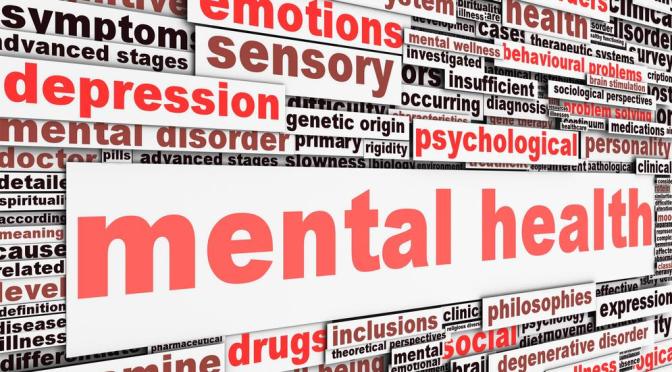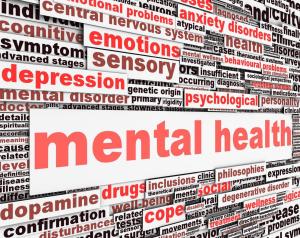If you feel you need the additional support of therapy and want to spend time working on your mental health and emotional wellness, do not feel that you are completely without options. (To limit confusion: for the purpose of this entry, I am using mental health, emotional wellness, support, and therapy somewhat interchangeably. )
After paying bills and covering basic needs, it’s really hard to set aside any sum of money to seek therapy, even when you want that sort of help. But did you know that there are so many resources available nationally/locally that you can use as affordable mental health resources? Many times, these providers alter their regular pricing to accommodate your situation, and charge via sliding scale (based on your income, or ability to pay), low-cost set fees, or NO-COST (free!) copays for their clients.
Having a dedicated outlet for your emotions and experiences is very important, but we don’t always have the chance to do this. Basically, when you are always preoccupied with reacting to such stressful conditions, are consistently traumatized, are fatigued from working all your jobs, and/or are exposed to abusive behaviors daily …. you spend more time worrying and less time doing the things you want to do. Ignoring your mental health decreases your quality of life, and it becomes extremely challenging to complete basic, objective tasks (like saving money or paying your bills). When you’re always panicking, emotions entangle themselves in the daily tasks that can easily be done, resulting in a lot of devastation.
Having also struggled with depression for years, I knew I barely functioned during those times. When you’re neither grounded nor reflecting on the difficulties you face or traumatic experiences you come across, things can spiral downward very quickly.
It’s no surprise that there are tremendous gaps in who is usually able to afford and access mental health services, and who isn’t. For the most part, communities of color are left on the outskirts of affordability. There is also a slew of cultural stigmas and systemic oppressions in acquiring treatment that further distance certain communities and ethnic enclaves from receiving these services.
There are also a set of issues that make mental health support services particularly challenging for women to acquire. As a survivor of domestic violence and childhood abuse, I can say economic abuse and lack of wealth for women play key roles in why so many stay in abusive relationships. I went to therapy during the time I was getting out of a bad relationship, and continued treatment while I was gradually rebuilding my life (which actually might still be occurring…ha!) So, I can attest to how important it is to have as much support as you can when you are transitioning to a better situation.
Therapy will not save you from every problem you are facing in your life. I treat it as a space where I am made to reflect on things happening to me. You won’t necessarily get homework from your therapist, or see a linear/straightforward process, but at minimum, you may be able to gain a better understanding of yourself and the current situation troubling you. Therapy is not a solution in itself, but a process to help you arrive to a solution.
The process: Many services and insurers cover treatment from psychiatrists (these doctors can prescribe medication), psychologists, and licensed clinical social workers (L.C.S.W.s). There are also specialists who focus on certain issues, like alcoholism or domestic violence (or partner violence/abuse), so you may seek them to fit your situation.
Once you find a specialist, do the intake at the office (usually just some basic contact info and your medical history), and then you have a session and get to talk with your specialist. It is wise to make appointments with various therapists, because this process is similar to “dating”, in that you’re making the decision whether this specialist and you are a fit. Sometimes, you may not like their approach/method, their offices are too far, or that you just plain are not feeling them. It is within your right to request a new specialist. Keep doing this until you feel like you are getting your needs met.
Also, consider finding a local support group for whatever issue you are facing, which are usually free. One place to start is the listing at Mental Health America, and then doing an online search for issue-specific groups, as well. This can also supplement your therapy sessions so you have a community of people with similar issues who can help support you.
Below this entry is a list** of organizations in the New York City area with opportunities for low-cost/sliding scale therapy. If you are not local, it might still be beneficial to call one of the providers and ask for any recommendations they may have in your area. They might be able to refer you to national or regional affiliates or contacts that may be better able to help you.
I know it can be overwhelming, so do the best that you can with what you have. Good luck on your search! I’m rooting for you! -h!
SHORT RESOURCE LIST
**This is an old list I compiled for a women’s organization I worked with closely in the NYC area.
Please also check these sites for the most current NYC area listings:
- http://nycfreeclinic.med.nyu.edu/information-for-patients/health-resources/health-resources-manhattan
- http://therapysafetynet.org/resources/additional-resources-uninsured/
=======
http://www.cmpstalkinghelps.org/
CONTACT
Phone (212) 228-6036
HOURS
9:00 a.m. to 8:00 p.m. Monday-Friday
LOCATION
16 West 10th Street
(between Fifth and Sixth Avenues)
=======
Crime Victims Treatment Center (this is a mental health resource)
St. Luke’s-Roosevelt Hospital Center
411 West 114th Street
Suite 2C
New York, NY 10025
(212) 523-4728
=======
Center for Educational and Psychological Services
Teachers College – Columbia University
Location:
525 West 120th Street, Box 91
New York, NY 10027
North side between Broadway & Amsterdam Avenue – 6th floor of Thorndike Hall at Teachers College
Procedure: Apply directly by calling its telephone number. Once the appointment is set up, the patient fills out an application and is assigned an advanced graduate student closely supervised by Teacher College faculty members.
Pricing: Sliding scale – $5 to $40 per session
Note: The Center’s services are not reimbursable under Medicaid, Medicare or other medical insurance plans.
Schedule: Every month except August. Monday through Thursday, 9am to 9pm. Friday, 9am to 5pm. Summer hours vary.
Phone: 1-212-678 -3262
Website: http://www.tc.edu/ceps/
=======
http://lccny.org/Services/IssuesWeCanHelpYouWith/tabid/940/Default.aspx
If your life seems out of control and nothing you do seems to help, you may want to call us (516-741-0994 or 1-800-317-1173). Our professional, caring licensed counselors provide individual, couple, children and family counseling
=======
http://www.icpnyc.org/
The Institute for Contemporary Psychotherapy
1841 Broadway @ 60th Street, 4th Floor NewYork, NY 10023
Tel: (212) 333-3444 Fax: (212) 333-5444
Albert Ellis Institute
Rational Emotive Behavior Therapy
Location:
45 East 65th Street
New York, NY 10021
Procedure:
Institute offers short-term therapy that offers long-term results. To arrange an appointment or discuss fees or insurance coverage, call Monday – Friday from 9:15 am-8:45 pm or Saturdays from 9:15 am-5:00 pm.
Pricing:
Individual counseling and therapy sessions range from $50-$150. Group sessions are $30. Lectures are $10 and workshops are $50.
Phone: 1-800-323-4758 or 1-212-535-0822
E-Mail: info@rebt.org
Website: www.rebt.org
“The core mission of the Albert Ellis Institute is to provide global access to the benefits of Rational Emotive and Cognitive Behavioral Therapies through the training and education of mental health and allied professionals worldwide.
The Institute is committed to the evolution, refinement, and application of these techniques and methodologies according to the principles of our founder in clinical, academic, and private sector settings.”
=======
Redeemer Presbyterian Counseling Service
Location:
1359 Broadway, 4th Floor
New York, NY 10018
Procedure:
Patient first goes through an “initial intake” where he or she is assigned a counselor based on his or her specific needs and each therapist’s expertise and availability.
Pricing:
Sliding scale: $40 – $120
Phone: 212-370-0475 x1365
E-mail: counselrpc@aol.com
Website: www.redeemer.com/care/counseling
“Redeemer Counseling Services is a ministry of Redeemer Presbyterian Church and exists to provide biblical perspective to the challenges of life. RCS provides professional counseling for individuals, couples, and families for the urban population of New York City. The goal of counseling is to provide a context of growth by equipping individuals and the urban community with emotional and spiritual wholeness. The counselors of RCS are trained individuals committed to Christian perspectives in dealing with mental health.”
=======
A Psychotherapy Group in the Village
Location:
160 Bleecker Street 9C East
New York, NY 10012
Procedure:
Call for a free consultation.
Pricing:
“Generous fees based on ability to pay.”
Phone: (212) 673-4618 or (646) 239 9112
E-mail: andremoore@mindspring.com
Website: http://www.am-psychotherapists-new-york-city.com/
“Psychotherapy Group in the Village New York City was founded in 1993 by André Anthony Moore and a group of psychotherapists, counselors, social workers, family therapists, psychoanalysts, psychologists and psychiatrists – trusted colleagues whom André has come to know over the years and whose work he admires and respects.”
=======
http://psych.med.nyu.edu/patient-care/inpatient-services/tisch-hospital/nyu-behavioral-health-care
NYU Behavioral Health Care Programs
401 East 34th Street – 4th Floor
New York, New York 10016
Phone: 212-263-7419
Office Hours: Call for Appointment
200, 75 each
=======
Bellevue Hospital Ambulatory Community Psychiatry Programs
462 First Avenue
New York, New York 10016
Phone: 212-562-1000
Office Hours: Call for Appointment
http://www.med.nyu.edu/psa/treatment/
http://www.med.nyu.edu/psa/treatment/treatment_application.html
sliding scale therapy:
NYU’s referral service
888 769 8633

